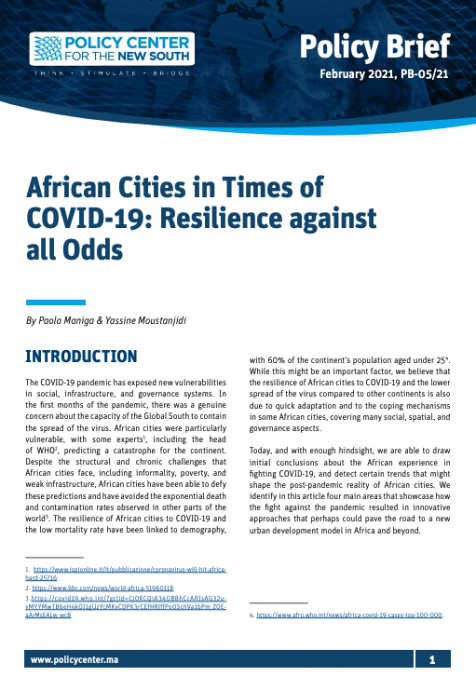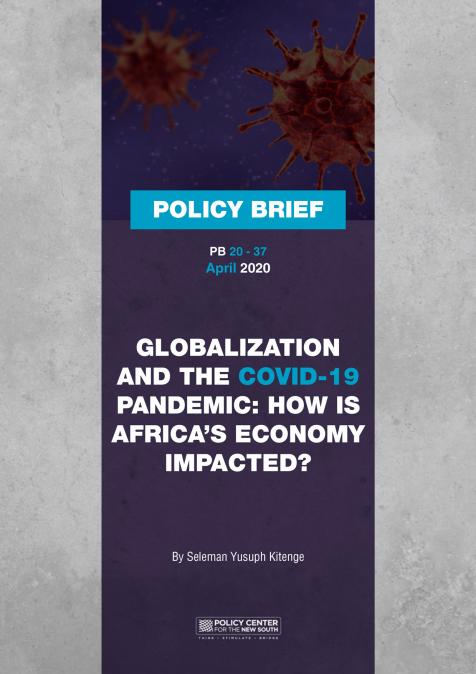Publications /
Policy Brief
The COVID-19 pandemic has exposed new vulnerabilities in social, infrastructure, and governance systems. In the first months of the pandemic, there was a genuine concern about the capacity of the Global South to contain the spread of the virus. African cities were particularly vulnerable, with some experts1, including the head of WHO2, predicting a catastrophe for the continent. Despite the structural and chronic challenges that African cities face, including informality, poverty, and weak infrastructure, African cities have been able to defy these predictions and have avoided the exponential death and contamination rates observed in other parts of the world3. The resilience of African cities to COVID-19 and the low mortality rate have been linked to demography, with 60% of the continent’s population aged under 254. While this might be an important factor, we believe that the resilience of African cities to COVID-19 and the lower spread of the virus compared to other continents is also due to quick adaptation and to the coping mechanisms in some African cities, covering many social, spatial, and governance aspects. Today, and with enough hindsight, we are able to draw initial conclusions about the African experience in fighting COVID-19, and detect certain trends that might shape the post-pandemic reality of African cities. We identify in this article four main areas that showcase how the fight against the pandemic resulted in innovative approaches that perhaps could pave the road to a new urban development model in Africa and beyond.






